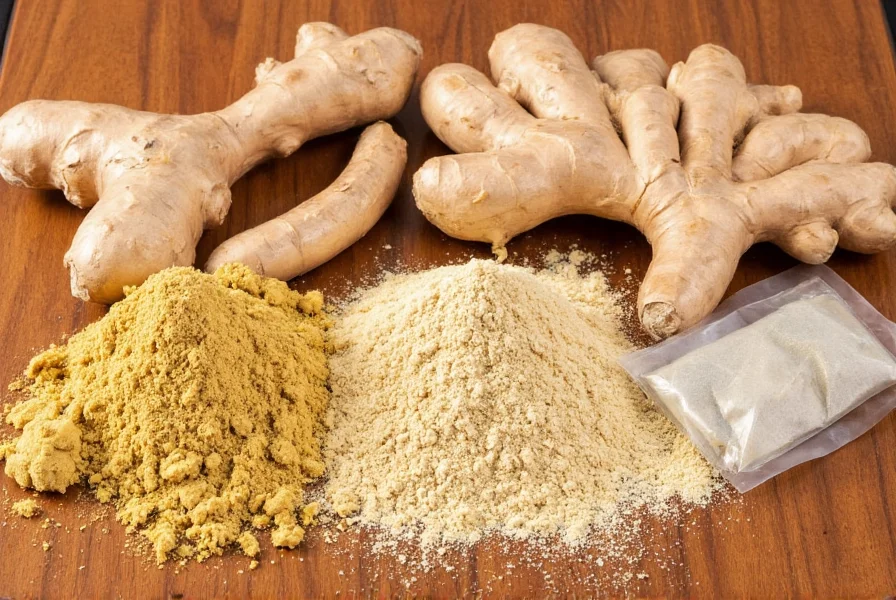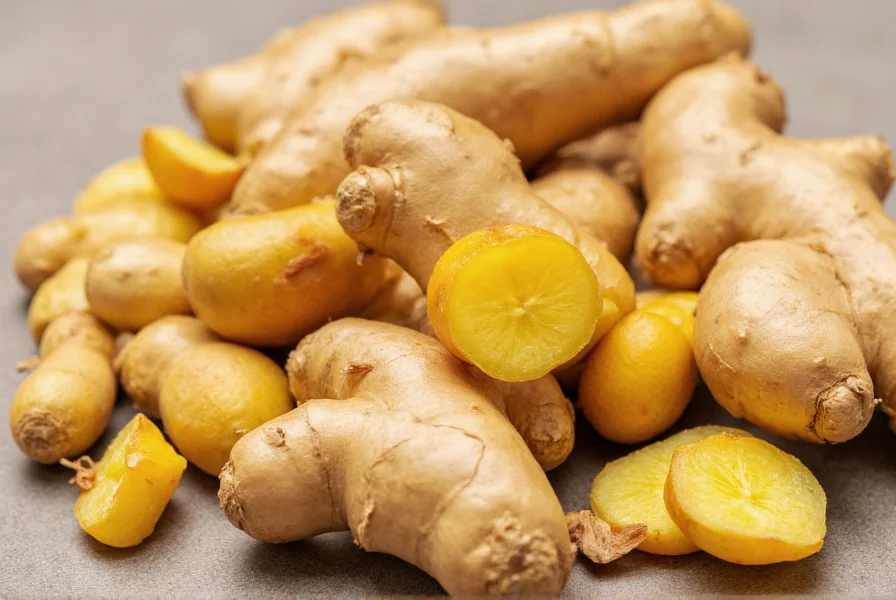Ginger has been used for centuries in traditional medicine, but modern science now validates many of its health benefits. This comprehensive analysis examines what clinical research reveals about ginger's effects on human health, separating evidence-based benefits from popular myths. As a functional food with bioactive compounds, ginger offers therapeutic potential while maintaining an excellent safety profile for most people when consumed in typical dietary amounts.
The Science Behind Ginger's Health Properties
Ginger's health benefits primarily stem from its bioactive compounds, particularly gingerols and shogaols. These phytochemicals give ginger its distinctive flavor while providing potent antioxidant and anti-inflammatory effects. Unlike many herbal supplements, ginger has substantial clinical research supporting its efficacy for specific health conditions.
Multiple systematic reviews and meta-analyses published in reputable journals like Nutrition Reviews and Complementary Therapies in Medicine confirm ginger's effectiveness for nausea relief, particularly for pregnancy-related nausea, chemotherapy-induced nausea, and motion sickness. The mechanism involves ginger's ability to influence serotonin receptors and gastric motility.
| Health Benefit | Research Support Level | Recommended Daily Amount |
|---|---|---|
| Nausea and vomiting relief | Strong (multiple RCTs) | 1-1.5 grams |
| Osteoarthritis pain reduction | Moderate to strong | 500mg-1g |
| Muscle soreness reduction | Moderate | 2g |
| Blood sugar regulation | Preliminary but promising | 1-3g |
Digestive Health Benefits: Beyond Folklore
One of ginger's most well-documented benefits is its positive impact on digestive health. Clinical trials demonstrate that ginger accelerates gastric emptying, which explains its effectiveness against indigestion and functional dyspepsia. A 2021 study in Food Science & Nutrition found that participants consuming 1.2 grams of ginger powder daily experienced significantly faster gastric emptying compared to placebo.
For those wondering is fresh ginger healthy for digestion, research indicates fresh ginger may offer superior benefits compared to processed forms due to higher concentrations of active compounds. The proteolytic enzymes in raw ginger assist with protein breakdown, while its carminative properties reduce bloating and gas.

Anti-Inflammatory and Pain Relief Properties
Ginger's anti-inflammatory properties make it valuable for managing chronic pain conditions. Multiple studies show ginger supplementation reduces markers of inflammation like C-reactive protein and interleukin-6. For osteoarthritis patients, ginger extract provides comparable pain relief to ibuprofen in some studies, with fewer gastrointestinal side effects.
Research published in Arthritis & Rheumatism demonstrated that participants with knee osteoarthritis who took ginger extract experienced significantly less pain during movement compared to placebo. The ginger anti-inflammatory properties research continues to grow, with promising results for menstrual pain, muscle soreness after exercise, and even migraine prevention.
Safety Considerations and Potential Interactions
While generally safe, ginger isn't appropriate for everyone. Understanding ginger side effects and medication interactions is crucial for safe consumption. The most significant concern is ginger's mild anticoagulant effect, which may interact with blood-thinning medications like warfarin. People scheduled for surgery should discontinue ginger supplements at least one week beforehand.
Some individuals may experience heartburn or mouth irritation when consuming raw ginger. Pregnant women should consult their healthcare provider before using ginger medicinally, though dietary amounts (up to 1 gram daily) are generally considered safe during pregnancy for nausea relief.
Practical Guidance: How Much Ginger Is Healthy?
Determining how much ginger is healthy per day depends on your health goals and status. For general health maintenance, culinary use provides sufficient benefits:
- Tea: 1-2 grams of fresh ginger root per cup
- Cooking: 1-3 grams grated or sliced in meals
- Supplements: 250-500mg standardized extract (consult professional)
The European Medicines Agency considers up to 4 grams daily safe for adults, but most research shows benefits at lower doses. For is ginger tea healthy for nausea, studies typically use preparations containing 1-1.5 grams of ginger, consumed 20-30 minutes before potential nausea triggers.

Ginger in Context: Benefits vs. Risks
When evaluating ginger benefits vs risks evidence, the balance strongly favors benefits for most people. The World Health Organization recognizes ginger's medicinal value, and the FDA classifies it as Generally Recognized As Safe (GRAS). However, ginger shouldn't replace medical treatment for serious conditions.
Unlike many pharmaceutical options for nausea or pain, ginger offers therapeutic effects with minimal side effects when used appropriately. Its advantage lies in being a whole food with multiple bioactive compounds working synergistically, rather than a single isolated compound.
Frequently Asked Questions
Can ginger help with morning sickness during pregnancy?
Yes, multiple clinical studies show ginger effectively reduces pregnancy-related nausea and vomiting. The American College of Obstetricians and Gynecologists recommends 250mg ginger capsules four times daily as a first-line treatment. However, pregnant women should consult their healthcare provider before using ginger medicinally, though dietary amounts are generally considered safe.
How long does it take for ginger to work for nausea?
Ginger typically begins working within 30-60 minutes when consumed as tea or capsules. For best results, take ginger 20-30 minutes before potential nausea triggers like travel or meals. Research shows effects peak around 1-2 hours after consumption, with benefits lasting several hours depending on the dose and form consumed.
Is there a difference between fresh ginger and supplements?
Yes, fresh ginger contains higher levels of gingerols, while dried or heated ginger has more shogaols, which are more potent but less abundant. Supplements standardize the active compounds but may lack the synergistic effects of whole ginger. For digestive benefits, fresh ginger may be superior, while standardized extracts provide consistent dosing for inflammation and pain relief.
Can ginger lower blood pressure?
Some studies suggest ginger may modestly lower blood pressure due to its antioxidant and anti-inflammatory effects, but the evidence isn't conclusive. A 2020 review in Phytotherapy Research found ginger supplementation reduced systolic blood pressure by approximately 4-8 mmHg in hypertensive patients. However, ginger shouldn't replace prescribed blood pressure medication without medical supervision.
Who should avoid consuming ginger?
People taking blood thinners like warfarin should consult their doctor before consuming large amounts of ginger. Those with gallstones should be cautious as ginger may increase bile production. Individuals scheduled for surgery should stop ginger supplements at least one week beforehand due to potential bleeding risks. People with ginger allergies (rare) should avoid it completely.











 浙公网安备
33010002000092号
浙公网安备
33010002000092号 浙B2-20120091-4
浙B2-20120091-4